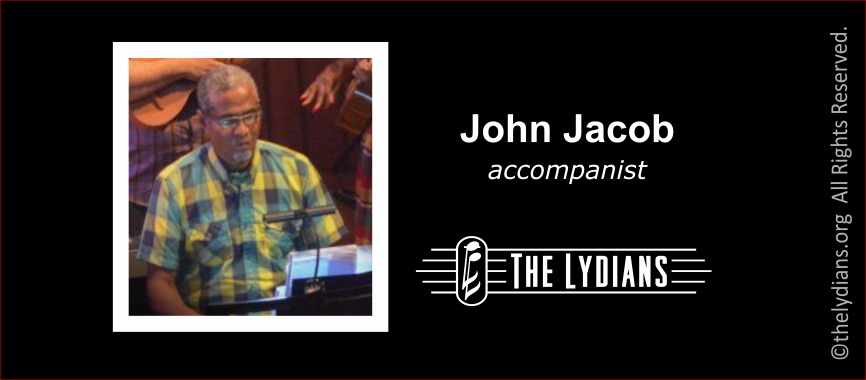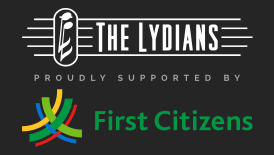John Jacobs

He walks into the practice session at Bishop's with an apologetic, sheepish smile. He is late. We have been working for at least an hour. He has been somewhere else, working with one of the Best Village groups, perhaps; or maybe he has just got around to fitting us into his busy schedule.
But his arrival is a signal for Pat to call out, 'Jacob is here', and to call a temporary halt to whatever we are doing. While we take his work from our folders, John Jacob goes over towards the piano, places his tape recorder on the stage nearby, sits on the piano stool, looks down, slightly hunched over the keys, rubs his goateed chin with his left hand and begins experimentally to pick out a tune. A few choristers hum or sing in recognition. He says, 'You all remember this?' 'John', other my call out 'that wasn't the way you did it last time. Last time you did it so…'; and a different version is hummed. 'Just now', says John; and he turns on his cassette player to remind us, and himself, of what we did last time.
The atmosphere is one of friendly bantering cooperation, for we know one another well; John usually arranges our Folk music. This time round, we are working with John Jacob, composer. In his head, in his voice and through his fingers on the keyboard, John has composed music for 'The New Genesis'. He hasn't noted it (or any of his work) in musical format anywhere. He gave us the typed words to his compositions all but one piece, his own lyrical poetry.
We cannot rehearse a Jacob composition without him present, in person; and it seems that he cannot refine his compositions without the Lydians present. It is this give and take, this positive feedback loop in which we are bound together that makes practice with John such an exciting and energizing experience.
John comes with a fleshed skeleton. With us he moulds the features. He modifies the lyrics to give repeat lines, he arranges the parts, he changes the tempo, he tinkers with the dynamic, and he creates the bridges between the verses. And as this happens, we scribble our own individual notation on to his pages of poetry, so that we can have some sort of written record for 'next time'. By 'next time', however, he has changed it in his head, reinforced his newest version by playing it on the piano at home, maybe even saved it on a cassette, and is quite amazed that we are singing something that he has moved on from. He laughs at himself and at us. We are all charmed by his smile and his personal style. Pat rolls her eyes heavenward and displays uncharacteristic patience, for a while.
At some point, after some weeks, usually at Pat's exasperated insistence, this open ended experimentation ceases, some firm decisions are made, we are all brought to a more disciplined approach, and quite suddenly the work has jelled. John and we are in complete accord. We know exactly what he wants and how he wants it done, for were we not present at the birth? And yet, in all the joy of being present at birth, there is already a sense of regret. We know that this work, however sublime, is already lost once we have sung it. Without a sound recording of the actual performance, and in the absence of a written record, John Jacob's compositions for 'The New Genesis' and other works of Caribbean Folk music, will exist only for as long as John and we remember them.
He has lost track of hundreds of his original works and arrangements in this way. He has written and arranged for his school, Santa Cruz R.C., for the Best Village Groups, and fro choirs in Tobago, the island of his birth. The lack of a written record means that it is almost impossible for John to verify ownership of his intellectual property, and he risks having it appropriated by others. Some of his arrangements have already entered, unattributed, into the oral tradition. In the meantime, the Lydians celebrate John Jacob's contribution to Caribbean Folk music through the years and to 'The New Genesis'.
Barbara Jenkins
Dec. 23, 2000



